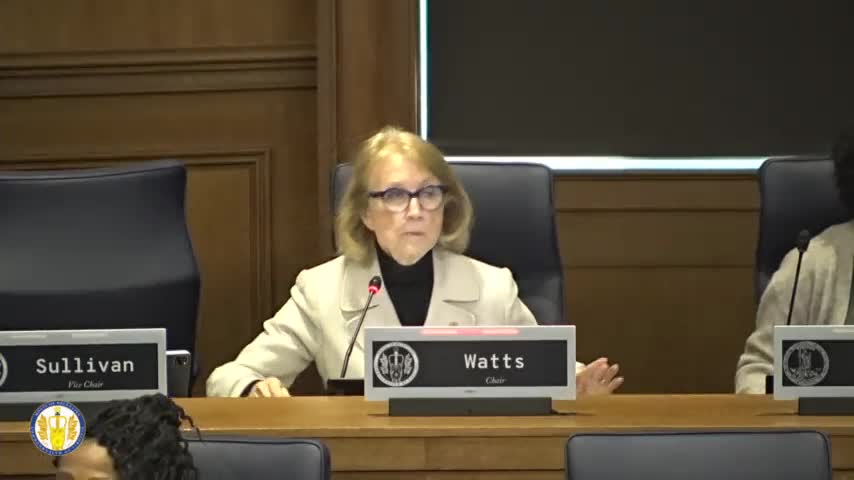House Finance presenter says committee will schedule omnibus bill to extend most expiring tax preferences ahead of 2026 sunset
Get AI-powered insights, summaries, and transcripts
Subscribe
Summary
A House Finance Committee presenter told members that 19 Virginia tax preferences are scheduled to sunset before July 2026; the committee plans an omnibus bill to extend all but the standard deduction, which will be handled separately so a joint subcommittee can review expiring preferences.
A presenter for the House Finance Committee said the panel will schedule an omnibus bill to extend most of the tax preferences that are set to expire in 2025, while the standard deduction will be considered separately.
The presenter said, “there's been an extraordinary 19 tax preferences are sunsetting before July 2026…we will hear an omnibus bill extending all but 1 of them and that 1 would be the standard deduction which will be heard separately for 1 year,” and added the separate handling would allow a joint Senate-House subcommittee to review and make recommendations on the sunsetted preferences.
Why it matters: many features of Virginia’s personal income tax track the federal tax code (the state is a conformity state), so expiration or change of federal provisions — particularly several provisions of the 2017 Tax Cuts and Jobs Act (TCJA) that lapse at the end of calendar year 2025 — could automatically alter Virginia law unless the General Assembly acts. The presenter told members the Congressional Budget Office projects extending the expiring individual TCJA provisions would increase the federal deficit by about $4.5 trillion over the next decade, a figure the presenter cited to underscore fiscal constraints.
Committee context and schedule: the presenter said staff are still determining whether the hearing will be held before the full committee or a subcommittee, and that calendar and streaming disruptions have compressed scheduling. The presenter also said materials underlying the briefing were prepared for the Senate Finance and Appropriations Committee on Nov. 21 and that Christian Collins, deputy commissioner of tax policy at the Virginia Department of Taxation, was one of the original presenters of that material.
Key technical points discussed: the presenter reviewed that Virginia adopted “rolling conformity” last year but said the extent to which that approach will operate under a cluster of federal changes is a significant test. The presenter summarized provisions at stake: the federal and Virginia standard deduction, mortgage interest rules and itemized deduction limits, limits on losses for noncorporate taxpayers, and business provisions including GILTI (global intangible low-taxed income). The presenter noted Virginia’s standard deduction has been increased in state law and cited figures discussed in the briefing: Virginia’s standard deduction was described in the materials as about $8,500 for single filers and about $17,000 for joint filers, while the presenter said the federal standard deduction for a married couple is “almost at $30,000.”
Distributional context and revenue impacts: the presenter said roughly 55% of Virginia taxpayers have a Virginia adjusted gross income under $50,000 and about 75% are under $100,000, after the adjustments used to compute Virginia AGI. The presenter pointed to the role of specific Virginia code sections in converting federal adjusted gross income to Virginia AGI and cited threshold figures discussed in the packet: “no tax is imposed below a Virginia resulting Virginia adjusted gross income of $11,006.50 or $23,300 for joint returns,” language presented to the committee in the briefing materials.
Program details and proposals: the presenter noted recent state changes such as making portions of the earned income tax credit refundable (described as roughly 40% refundable in the briefing), making the pass-through entity tax refundable, and deconforming from some federal limits (for example, on SALT deductions). The presenter also listed federal proposals reported in the briefing as possible actions at the national level that would affect Virginia revenue, including proposals to lower the corporate tax rate, change energy tax credits, alter the federal child tax credit, exempt Social Security or overtime pay from taxable income, and modify caps on state-and-local tax deductions. The presenter said exempting overtime pay at the federal level was described in the materials as a potential $200 million–$300 million revenue loss for Virginia.
Next steps and public access: the presenter said the committee will publish the briefing slides and related documents on the committee website and encouraged members to consult Department of Taxation staff (including the deputy commissioner) for technical questions. The presenter closed by asking members to “stay tuned for what our docket will be in the coming meetings” and noted scheduling pressure caused by earlier streaming interruptions.
Ending note: no formal vote or final action on any bill occurred during the remarks; the presenter characterized the session as an informational briefing and scheduling direction for upcoming hearings.
